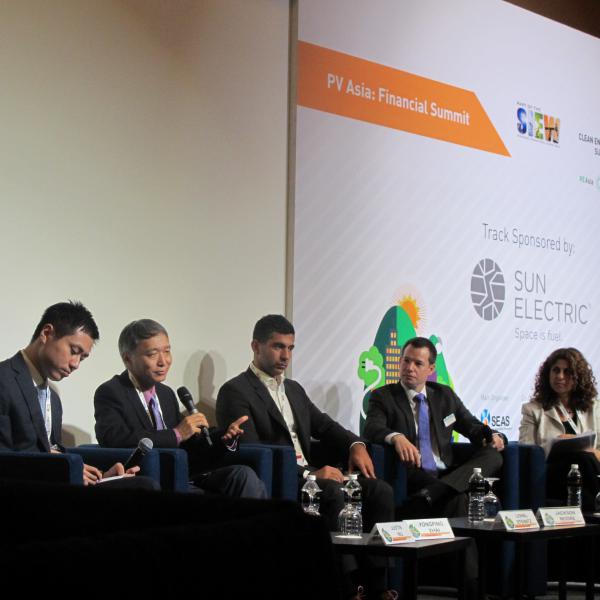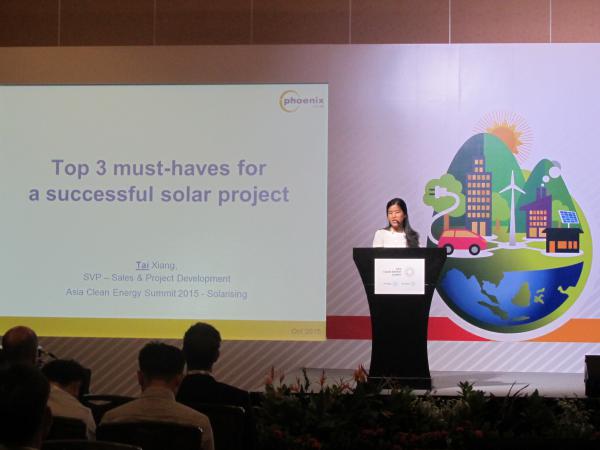- Details
- Category: Uncategorised
- Hits: 2164
The PV Asia Financial Summit had a full day programme packed with panels discussing hot topics of the industry: the solar market in Asia, project financing in Asia, innovative financing solutions, and building a quality PV project. In this track which is brought to ACES by VDE Institute, each panel discussion was preceeded by 1 or 2 keynotes which helped give the delegates some context and topical understanding of the panel discussions.
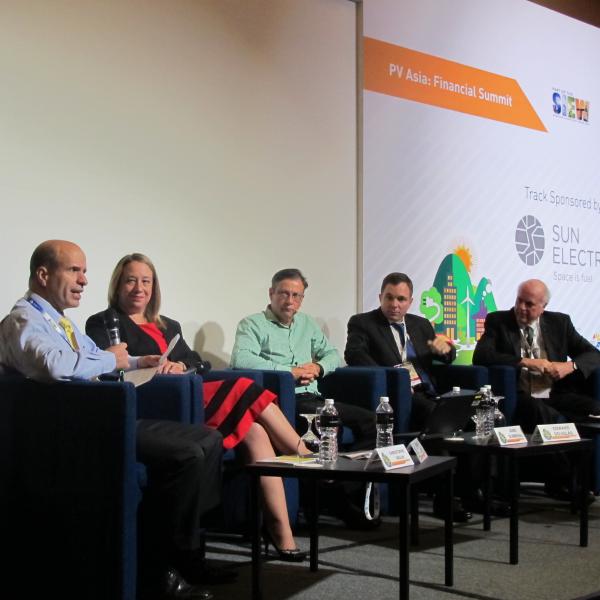
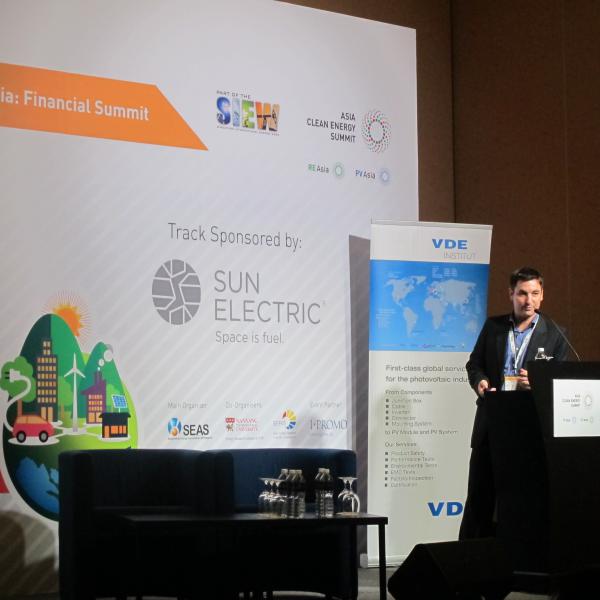
One of the keynote addresses was by Ken Cheung, Partner at Bird & Bird ATMD. He spoke about what green bonds and yieldcos were and their applications. This was followed by the panel on innovative financing solutions for PV, where topics like what are the financial models being used in Asia recently, and how would financing solutions such as green bonds, yieldcos, crowdfunding work for renewable energy. On this particular panel, we had investors, bankers and an insurance provider thus a wide range of views were shared about whether each of them would consider a renewable energy financing solution like crowdfunding. The panel also discussed in greater depth about green bonds and yieldcos, and the conversation flowed easily after the context given by the keynote speaker. How do we ensure that green bonds are really green? How do we get started on crowdfunding?
In the panel about building a quality PV project, the panelists discussed issues they faced when developing renewable energy projects, how to mitigate these issues and what a good project needs. Mark Lees, Regional Business Director, East Asia – Australia Solar Business, Schneider Electric shared that timing and local requirements were two issues he faced. Connecting to the grid means having to meet tight deadlines and very careful project planning is needed. Project developers also need to be aware of the local standards and habits of utility companies. Amiram Roth-Deblon, Regional Director Asia Pacific, juwi Renewable Energies recommends working with a local partner with sufficient manpower, capability and stamina to complete the project. Jules Lee, Marketing Manager, Asia Pacific Ex. China, DuPont Photovoltaic Fluoromaterials said that having good materials is very important and it is worth it to pay more for good materials so that there can be returns of investment in the long run.
- Details
- Category: Uncategorised
- Hits: 2174
Potential solar adopters were invited for this session as Solarising Singapore aims to let them hear directly from solar experts who are involved in all aspects of solar PV installation: the panel makers, installers, developers, and financiers. Solarising Singapore saw some very engaging panel discussions as the audience and panellists discussed issues like how much more Singapore needs to do in order to achieve 1,000MW capacity by 2020 and what are some of the key requirements for a successful PV project.
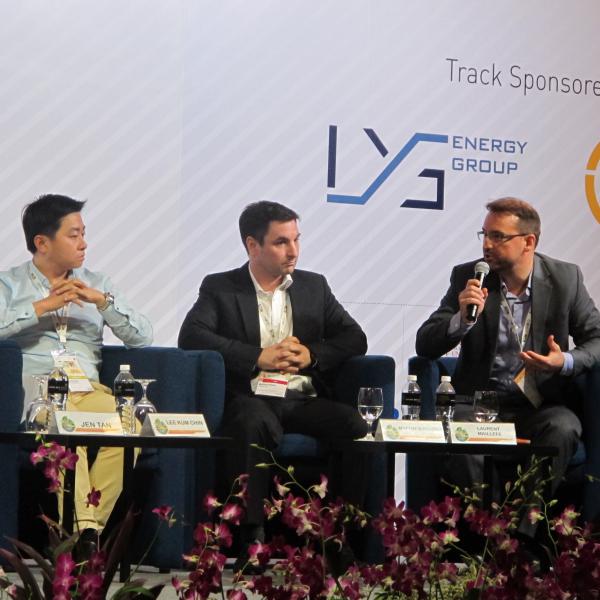
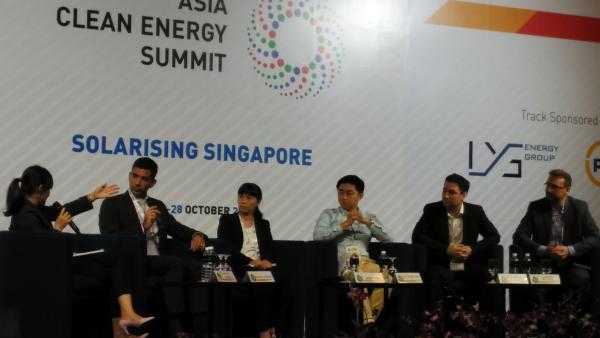
- Details
- Category: Uncategorised
- Hits: 2499
We had an esteemed first panel discussing energy storage and integrating renewable energy to the grid. One of the main takeaways was that regulations need to adapt to clean energy in order to create a level playing field for the industry.

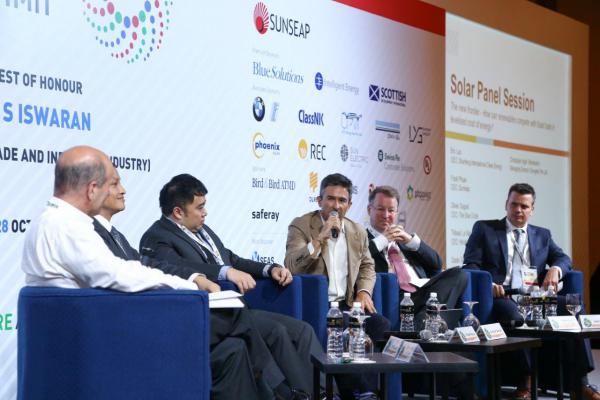
The second panel focused on how solar can compete with fossil fuels in levelised cost of energy. Solar has one of the greatest potentials in the region and one of the key takeaways from this panel is that infrastructure is one of the greatest barriers to greater installation.
